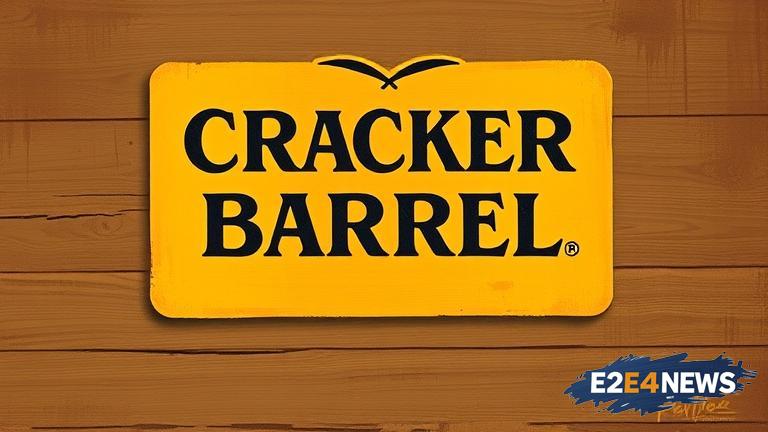Cracker Barrel, a popular American restaurant chain, recently found itself at the center of a branding controversy. The company had unveiled a new logo, which was met with widespread criticism from customers and fans. The backlash was so severe that Cracker Barrel was forced to concede a misstep and revert to its original logo. The incident highlights the importance of listening to customer feedback and being mindful of the emotional connection that customers have with a brand. Cracker Barrel’s decision to change its logo was likely intended to modernize the brand and appeal to a new generation of customers. However, the new design was seen as a departure from the company’s traditional values and aesthetic. Customers took to social media to express their disappointment and frustration, with many feeling that the new logo was a betrayal of the brand’s heritage. The controversy surrounding the logo change was a major topic of discussion on social media platforms, with many calling for the company to revert to its original design. Cracker Barrel’s decision to listen to customer feedback and revert to its original logo is a testament to the power of social media and the importance of customer engagement. The incident also highlights the challenges of rebranding a company with a rich history and loyal customer base. Cracker Barrel’s original logo had become an iconic symbol of the brand, evoking feelings of nostalgia and warmth. The new logo, on the other hand, was seen as cold and impersonal. The company’s decision to change its logo was likely driven by a desire to appeal to a new generation of customers, but it ultimately alienated the brand’s loyal fan base. The backlash against the new logo was swift and severe, with many customers threatening to boycott the company. Cracker Barrel’s decision to revert to its original logo is a major victory for customer engagement and a testament to the power of social media. The incident serves as a reminder that companies must be mindful of the emotional connection that customers have with a brand and be willing to listen to feedback. Cracker Barrel’s decision to listen to customer feedback and revert to its original logo is a major step in the right direction, and the company is likely to emerge from the controversy with a renewed sense of purpose and commitment to its customers. The incident also highlights the importance of preserving a brand’s heritage and tradition, even in the face of changing consumer preferences. Cracker Barrel’s original logo is a beloved symbol of the brand, and its return is a major victory for customers who value tradition and nostalgia. The company’s decision to revert to its original logo is also a testament to the importance of customer loyalty and retention. By listening to customer feedback and responding to concerns, Cracker Barrel has demonstrated a commitment to its customers and a willingness to adapt to changing circumstances. The incident serves as a reminder that companies must be agile and responsive to customer needs, even in the face of controversy and criticism. Cracker Barrel’s decision to revert to its original logo is a major step in the right direction, and the company is likely to emerge from the controversy with a renewed sense of purpose and commitment to its customers. The company’s commitment to customer engagement and feedback is a major asset, and its decision to listen to customers and respond to concerns is a testament to its values and mission. Cracker Barrel’s original logo is a beloved symbol of the brand, and its return is a major victory for customers who value tradition and nostalgia. The incident highlights the importance of preserving a brand’s heritage and tradition, even in the face of changing consumer preferences. Cracker Barrel’s decision to revert to its original logo is a major victory for customer engagement and a testament to the power of social media.
